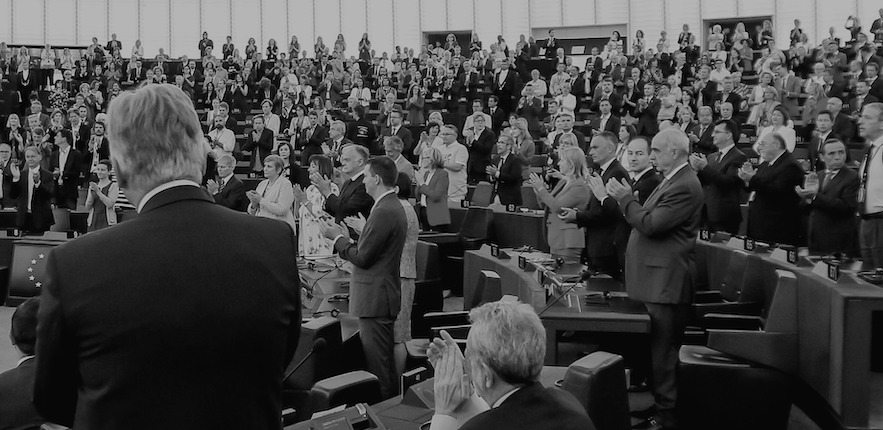For policy makers
“The gross national product measures everything except that which makes life worthwhile. Robert Kennedy
A Wellbeing Economy seeks to move Beyond GDP to define societal success not purely by financial measures, but by what research tells us truly matters to people: our wellbeing.
4th Century BCE
Aristotle suggests that “eudaimonia” is the goal or telos of human life. For Aristotle, eudaimonia is the highest human good, the only human good that is desirable for its own sake rather than as a means to some other end.
4th Century BCE
Aristotle suggests that “eudaimonia” is the goal or telos of human life. For Aristotle, eudaimonia is the highest human good, the only human good that is desirable for its own sake rather than as a means to some other end.
1776
Jeremy Bentham advocates that societies should orient themselves towards the ‘greatest happiness of the greatest number’ (in ‘A Fragment on Government’).
1776
Jeremy Bentham advocates that societies should orient themselves towards the ‘greatest happiness of the greatest number’ (in ‘A Fragment on Government’).
1934
Simon Kuznets introduces measure of GDP but warns against its use as a single measure of a nation’s economic health. He tells the US Congress in 1937: “The welfare of a nation can, therefore, scarcely be inferred from a measurement of national income…”
1934
Simon Kuznets introduces measure of GDP but warns against its use as a single measure of a nation’s economic health. He tells the US Congress in 1937: “The welfare of a nation can, therefore, scarcely be inferred from a measurement of national income…”
2012
The first World Happiness Report is released in April 2012 as a foundational text for the UN High Level Meeting: Well-being and Happiness: Defining a New Economic Paradigm, drawing international attention.
2012
The first World Happiness Report is released in April 2012 as a foundational text for the UN High Level Meeting: Well-being and Happiness: Defining a New Economic Paradigm, drawing international attention.
2014
Care Act in the UK enshrines wellbeing as a goal for local councils.
2014
Care Act in the UK enshrines wellbeing as a goal for local councils.
2018
UK’s HM Treasury Green Book openly accepts wellbeing as a valid objective for new policies.
2018
UK’s HM Treasury Green Book openly accepts wellbeing as a valid objective for new policies.
2019
The Wellbeing Research Centre is founded at the University of Oxford under the direction of Professor Jan-Emmanuel De Neve.
2019
The Wellbeing Research Centre is founded at the University of Oxford under the direction of Professor Jan-Emmanuel De Neve.
2021
The Norwegian Government announces that it will develop a new national strategy for wellbeing.
2021
The Norwegian Government announces that it will develop a new national strategy for wellbeing.
2022
World Wellbeing Movement launches, counting the University of Oxford’s Wellbeing Research Centre and leading corporate organisations among its founding members.
2022
World Wellbeing Movement launches, counting the University of Oxford’s Wellbeing Research Centre and leading corporate organisations among its founding members.
1689
John Locke argues in ‘Essays Concerning Human Understanding’ that the highest perfection of intellectual nature lies in a careful and constant pursuit of true and solid happiness.
1689
John Locke argues in ‘Essays Concerning Human Understanding’ that the highest perfection of intellectual nature lies in a careful and constant pursuit of true and solid happiness.
1776
United States Declaration of Independence reflects Bentham’s tradition by speaking of ‘life, liberty and the pursuit of happiness’ as inalienable rights.
1776
United States Declaration of Independence reflects Bentham’s tradition by speaking of ‘life, liberty and the pursuit of happiness’ as inalienable rights.
1974
The Easterlin Paradox is proposed by Richard A Easterlin, the first economist to study happiness data. He observes that, though higher incomes are associated with higher levels of happiness, average happiness does not appear to increase with increases in average income.
1974
The Easterlin Paradox is proposed by Richard A Easterlin, the first economist to study happiness data. He observes that, though higher incomes are associated with higher levels of happiness, average happiness does not appear to increase with increases in average income.
2011
Office for National Statistics (ONS) introduces four survey questions to the Annual Population Survey in order to measure ‘personal well-being’. Known as the ONS4, these questions continue to provide the best national estimates of individual wellbeing in the UK.
2011
Office for National Statistics (ONS) introduces four survey questions to the Annual Population Survey in order to measure ‘personal well-being’. Known as the ONS4, these questions continue to provide the best national estimates of individual wellbeing in the UK.
2018
WEAll (the Wellbeing Economy Alliance) is formally launched at the OECD’s World Forum in Incheon, South Korea, in 2018. Membership of the group has grown since its foundation to include Scotland, Wales, Iceland, New Zealand, and Finland.
2018
WEAll (the Wellbeing Economy Alliance) is formally launched at the OECD’s World Forum in Incheon, South Korea, in 2018. Membership of the group has grown since its foundation to include Scotland, Wales, Iceland, New Zealand, and Finland.
2019
New Zealand unveils its first “wellbeing budget” under Jacinda Ardern’s Labour-led coalition government.
2019
New Zealand unveils its first “wellbeing budget” under Jacinda Ardern’s Labour-led coalition government.
2021
Canada includes a wellbeing/quality of life framework in their 2021 budget.
2021
Canada includes a wellbeing/quality of life framework in their 2021 budget.
2022
For the first time the New Zealand Treasury publishes a Wellbeing Report, which uses the country’s updated Living Standards Framework to assess the effects of Governmental policy on quality of life.
2022
For the first time the New Zealand Treasury publishes a Wellbeing Report, which uses the country’s updated Living Standards Framework to assess the effects of Governmental policy on quality of life.
